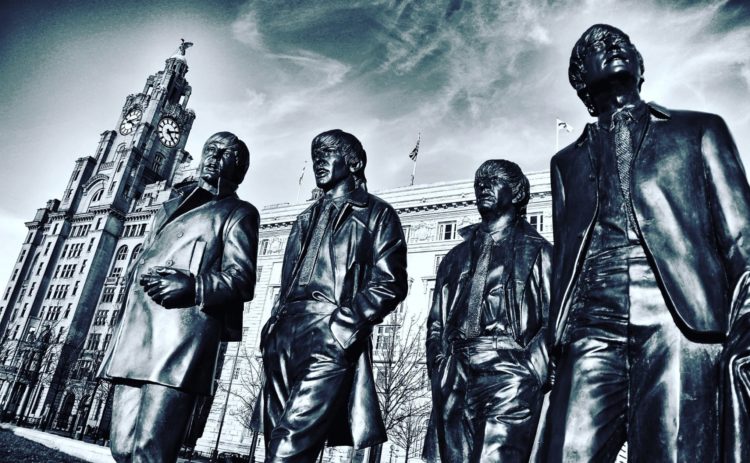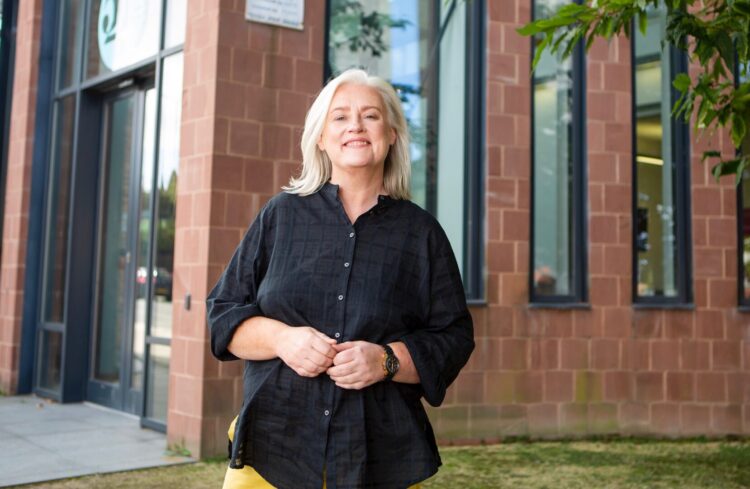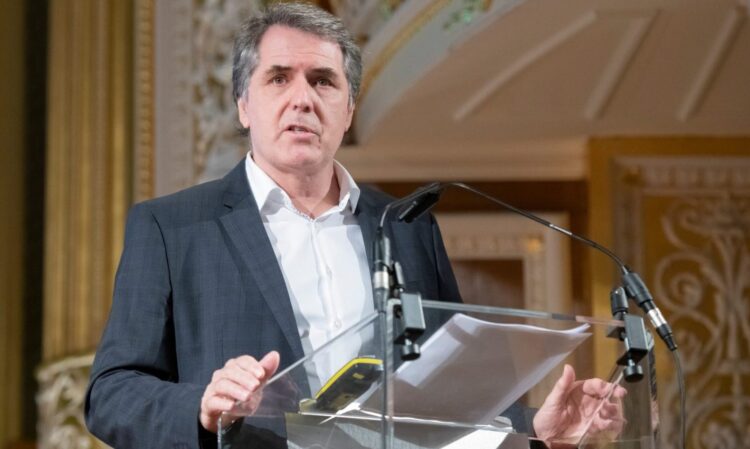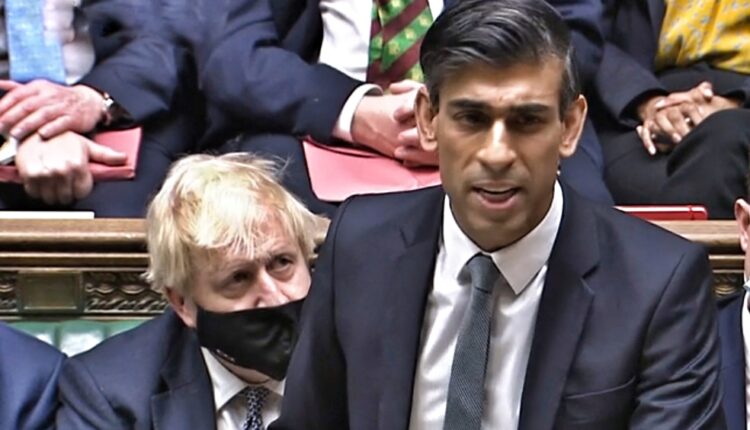In his latest Budget Chancellor Rishi Sunak has offered the biggest cut in business rates for more than 30 years, totalling £7bn. Tony McDonough reports

Chancellor Rishi Sunak is giving massive shot in the arm to small businesses with cuts to business rates worth £7bn – the biggest in 30 years.
In his Budget speech to the House of Commons on Wednesday, Mr Sunak also announced £2m in funding for a new musical attraction on Liverpool waterfront. He said the project was champion by Liverpool-born culture secretary Nadine Dorries. There was also £20m for Tate Liverpool and National Museums Liverpool.
A number of measures in the Budget were revealed in the days leading up to the speech. At the weekend LBN reported that the Liverpool City Region Combined Authority had secured £710m to fund battery operated trains that would facilitate the expansion of the Merseyrail network.
But the biggest boost for small businesses was revealed in the speech when Mr Sunak unveiled a number of measures to help SMEs hit hard by the pandemic. They are specifically aimed at those in the retail, leisure and hospitality sectors.
Mr Sunak resisted calls to scarp the current system completely saying this would cost £25bn. However, he said that from 2023 there would be more frequent revaluations – every three years.
He is also introducing a new relief to support investment in green improvements and technologies. Businesses investing in renewable innovations such as solar panels and wind turbine for the five years will be exempt from business rates altogether.
And from 2023, every business will be able to make improvements to their properties and pay not extra business rates for 12 months. Mr Sunak is also cancelling next year’s planned increase in the business rates multiplier which he claims will save businesses £4.5bn over the next five years.
Busness rates reliefs that were due to end in 2022 for another year, saving small businesses £30m. And he added: “To help those business hit hardest by the pandemic, and crucial to high streets, we will be introducing a new 50% business rates discount for businesses in the retail, hospitality and leisure sectors.
“It means more than 90% of businesses in the retail, hospitality and leisure sectors will see a discount in their business rates by at least 50%. This is the biggest single cut in business rates for more than 30 years and it worth up to £7bn.”

Mr Sunak said the Budget, in which it was announced total departmental spending will increase by £150bn during this Parliament, was designed to prepare the country for a post-COVID “age of optimism”.
He said the Government was accepting the recommendation to raise the the living wage to £9.50 an hour, which will produce a raise for those workers of £1,000 a year. However, Paul Johnson of the Institute of Fiscal Studies has said the living wage rise will only equate to around £700 after taxes, and will be even less for those on Universal Credit.
Mr Sunak also told MPs that COVID would only hit the UK economy long term by around 2% – this forecast is down on the 2% forecast in March. Paul Johnson added: “Don’t forget the 2008/09 crisis hit the economy by 10% permanently. If we get away with 2%, we should be relieved.”
The Chancellor revised economic growth for 2021 upwards from 4% to 6.5%. He said inflation is likely to hit 4%. And he announced extra money for schools and a “radical simplification” of alcohol duty and a £3.8bn skills fund and maths programme for adults.
However, the Forum of Private Business claimed the Chancellor had again failed to address the issue of business rates properly, saying he had “missed the opportunity to create an immediate level playing field across small businesses, big businesses and online businesses”.
Local reaction
Cuts to business rates was welcomed by Paul Cherpeau, chief executive of Liverpool Chamber, who said: “The changes announced to business rates will be a welcome relief to many businesses and should give them greater confidence to invest and grow while also embracing sustainable energy choices.
“Regional operators in the retail, hospitality and leisure sectors, who were among the worst hit by the pandemic, will benefit from the temporary 50% cut, offering them some extra breathing space to find their way out of debt and invest in the future of their staff and buildings.
“Innovation will be a cornerstone of our regional economic recovery and we welcome incentives to boost inward investment in sectors such as life sciences or automotive, where the city region already has multiple strengths and ambitious future plans.
“While we welcome the £710m additional transport funding, we also need to see the Government honour its wider rail enhancement commitments to deliver improved services across the north as well as increasing the potential for rail freight.”

However, Maggie O’Carroll, chief executive of The Women’s Organisation in Liverpool was disappointed with what was on offer for small businesses. The Women’s Organisation is the lead agency for the Liverpool City Region Enterprise Hub start-up support programme.
She said: “Of course, measures to support those sectors which have been hardest hit by the pandemic are very welcome. We’ve seen many of our clients in the retail, hospitality and leisure suffer catastrophic blows in the last two years.
“It’s heartening to see some measures being announced to improve the landscape for them at least in the short term – though the measures are only temporary and in reality, neglect thousands of small businesses both locally and nationally.
“We are living in a modern day, digital economy and the culture of agile working has been accelerated as a result of lockdown – so to still be talking about bricks and mortar frankly seems absurd.
“Experts predict small and micro businesses are unlikely to return to the previous culture of office working, rather they will continue to adopt the hybrid model we have become so accustomed to – and which has proven to increase productivity for a number of organisations.
“The business rates reliefs announced therefore stand to leave whole swathes of businesses unsupported and this just isn’t good enough. Start ups and small businesses are the lifeblood of our economy. They provide jobs and attract investment into individual regions.
“If we are to see the economy begin to recover and thrive, we must first lift it off its knees by investing in funding and support – it’s what we call speculate to accumulate.”

Liverpool City Region Metro Mayor, Steve Rotheram, said the £3bn commitment to skills training was a “step in the right direction” but added it was a “drop in the ocean” in terms of what will be needed for a full recovery from the pandemic.
“We’re still awaiting full details but one thing is clear: to make sure we get bang for our buck, this funding should be delivered locally,” he said. “In our region, we’ve shown time and again that we can make funding go further and make a much bigger difference than centrally controlled schemes. A one-size-fits-all approach simply does not work.
“Combined authorities such as ours have a proven track record of delivering that value for money and are best placed to make sure that those training programmes are linked to local skills needs and shortages.
“There is a massive pot of unspent Apprenticeship Levy funding gathering dust in Whitehall that we could make much, much better use of in our region training local people and helping them into well-paid secure jobs.”
On levelling up, he added: “The most efficient way this country can deliver real levelling up is by empowering local areas to tackle those inequalities by giving them the powers, funding and autonomy they need to get the job done.
“Given the damage austerity has done to local government finances over the past decade, playing areas off against each other in beauty contests for ringfenced support wastes a lot of energy and resource that could be put to better use delivering transformational change.”

A cautious welcome for the retail, leisure and hospitality sector support came from Bill Addy, chief executive of Liverpool BID Company. He said: “The core challenges business is facing are on rising prices, finding skilled staff and operating in a confident economy. Has this Budget delivered on that?
“There’s no mention of VAT but there is much in there for business. Changes to business rates and relief for what, in effect, is much of the cultural and retail industry in Liverpool is welcome but what is the impact on local government going to be?
“And this is short term. What happens in 2025 or beyond? This might give immediate relief but what two or three years from now? We need a real, dedicated and thorough business rates review.
“The increase in the National Living Wage is critical for those working in retail and hospitality. But how far is it going to go to fill crucial gaps in sectors, like hospitality, like the cultural sector, where the lack of skilled workers is hindering recover?
Business needs a greater indication of the support they will be able to get to hire workers from overseas. How are roles going to be promoted and those gaps filled? We know how important food and drink is to Liverpool’s economy and the attraction are greatly diverse range of hospitality does to attract visitors, but Chefs are not on the recruitment list for visas.
“Skills training is crucial for a high earning economy but where is the through line for this? Business needs to have a short term solution while we wait for the next generation to come out of education and training.”

Andrew Ruffler, chief executive of Professional Liverpool, said: “In Liverpool city region there has been a bounce as we’ve come out of lockdown and businesses will be desperate to retain that optimism and energy.
“Liverpool has done well to secure funding for new cultural projects, which will certainly help. Our retail and hospitality and leisure businesses will also welcome the 50% tax cut to business rates for the next 12 months.
“As good as it was to hear levelling-up as central to the way forward, with the Chancellor recognising that the location of your birth determines too much of your future in the UK, anyone in the UK regions will probably retain a healthy sense of scepticism about how much rebalancing of the economy is actually going on.
“We await the details of the 42% hike to £3.8bn spending on skills – but it’s certainly the direction of travel Liverpool city region businesses want to see.”

This Budget will give businesses “confidence that the economy is returning to a level of stability”, according to. Tony Medcalf, tax partner at Liverpool accountants MHA Moore and Smalley. He said: “The Government has spent heavily since March 2020 to support businesses and employees through the COVID-19 pandemic.
“While many of the headlines from today’s announcement had already been publicised leading up to today’s speech, companies will also be relieved not to be presented with any additional surprises aimed at reducing Government borrowing through increased taxes.
“It appears the Government will look to raise additional tax revenues by prompting business investment and economic growth.
“These measures, in addition to several business rates relief measures for property improvements and green investment over the next 12 months and the already announced £7bn regional transport infrastructure will help to stimulate business growth while in turn creating tax receipts as businesses grow and become more profitable.”
And Rachel Engwell, head of tax, north at Grant Thornton, said: “A mixed bag for North West businesses today. While we naturally welcome the £1.7bn investment in transport in Greater Manchester and Liverpool city region, there was however little to help with businesses facing a hike in corporation tax next year and currently suffering from a huge uptick in energy prices and other supply chain issues.
“It was pleasing to see some help for the sectors most impacted by the pandemic, retail, leisure and hospitality, who can now claim a 50% business rate reduction next year, up to a maximum of £110,000.”

